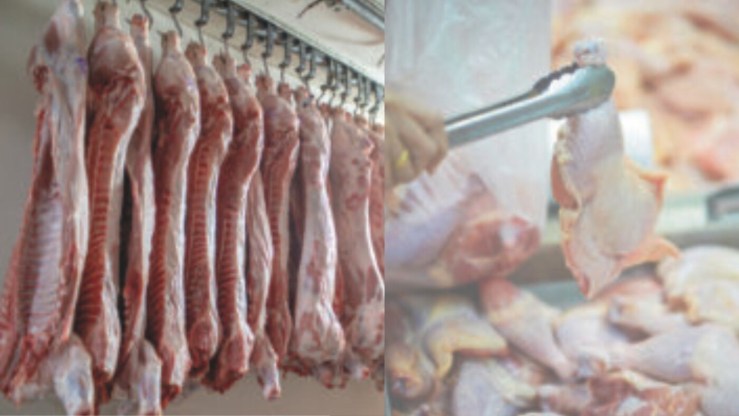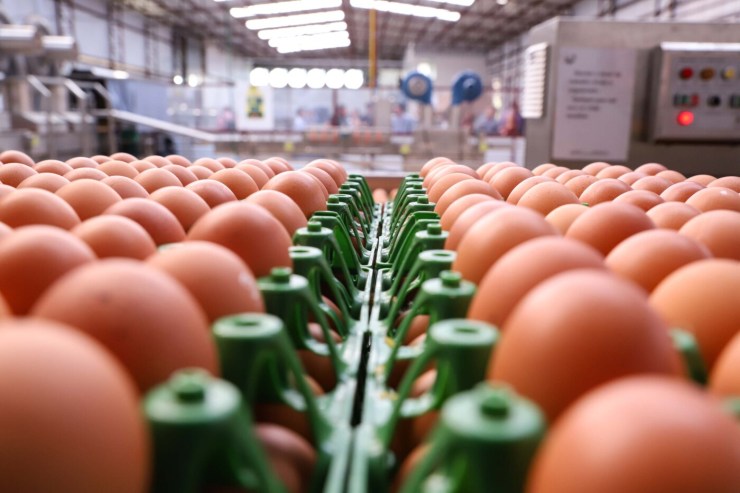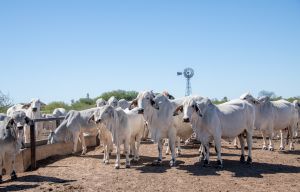With the aim of raising awareness and supporting rural producers in the process of changes brought about by the European Anti-Deforestation Law, known by the acronym EUDR, the Brazilian Sustainable Livestock Board held, last Wednesday (11), the first Inclusive Dialogue of 2025.
Entitled “EUDR and Traceability: Impacts and paths for Brazilian livestock farming”, the dialogue demonstrated that individual traceability is already underway in Brazil, with accessible tools and, mainly, direct benefits for the producer, both in business management and profitability.
The event was attended by Michele Borges, executive manager of MBPS, Luiz Roberto Zillo, executive director of Sociedade Rural Brasileira (SRB), Aécio Flores, vice-president of the Brazilian Association of Certification Companies for Auditing and Traceability (ABCAR) and coordinator of the MBPS Traceability WG, and Renan Coleta and Maryele Rodrigues, both from MFG Agropecuária.
Health security and reputation
More than meeting an import market standard, individual traceability proves to be an important management tool, argue the debate participants.

Its implementation, according to them, is useful, practical and advantageous, bringing benefits to control, productivity and production efficiency, even if, in the end, the product is not exported.
“I participated [in the implementation] of SISBOV and saw that traceability completely changed farm management. It greatly improved employee perception, health work… it brought order to things and brought the possibility of bringing predictability for two, three years ahead. I believe that the system that is being proposed will benefit the entire chain, not only abroad, but also for the domestic market,” said Luiz Roberto Zillo, from the Brazilian Rural Society (SRB), when commenting on the National Plan for the Identification of Cattle and Buffaloes (PNIB), launched by the Ministry of Agriculture and Livestock (Mapa) in December 2024.
Aécio Flores, from ABCAR, mentioned the benefits of traceability, which, according to him, have both tangible and intangible benefits. Among the benefits mentioned is greater sanitary control of livestock, which is essential for maintaining and opening new markets. “Today, Brazil is a country free of foot-and-mouth disease without vaccination. This requires high-quality sanitary surveillance. With traceability, we can quickly identify the origin of any suspicious outbreak and act in a localized manner, avoiding the blockade of large producing regions,” he argued.
Traceability: Path to value, efficiency and market access
Maryele Rodrigues and Renan Coleta brought to the debate the experience of MFG Agropecuária in implementing traceability and the benefits it brings, including bonuses for rural producers and greater internal control. “Once you learn to work with what is good and organized, you want this for all areas; it is a chain reaction that leads to another. The change in management is very palpable, so don’t leave it until the last minute,” Maryele argued.

They also provided concrete data on financial gains for producers who have already adopted traceability. “At MFG Agropecuária, since 2009, we have been paying R$3.00 more per arroba tracked. And it’s not just for the foreign market, it’s because producers who track deliver better results,” commented Renan.
Traceability also opens doors to rural credit with lower interest rates, via programs such as ABC+, PRONAF Verde, and lines that reward sustainability.
Inclusion and scalability: traceability is for everyone
Far from being exclusive to large farms, traceability is already being adopted by medium and small producers with the support of technicians, cooperatives and accessible platforms.
Those who track products win in the market, in terms of credit, management and trust. Traceability pays for itself with bonuses received on sales and with savings in management and health prevention. And producers can count on technical support, from SENAR to private consultancies.
Traceability is also an effective means of complying with the EUDR, as it shows where the animal was born, where it was raised, and whether it was in a legal area and free from deforestation.
What is the EUDR?
EUDR stands for European Union Deforestation-Free Regulation (EUDR). It is a new law that, according to the EU, aims to combat global deforestation by banning the import, by member countries, of agricultural products that are linked to the destruction of native vegetation around the world. The regulation is scheduled to come into force on December 30, 2025 for large companies and on June 30, 2026 for micro and small businesses.
The full text of the first Inclusive Dialogue of 2025 is available on the MBPS YouTube Channel. Watch now!





